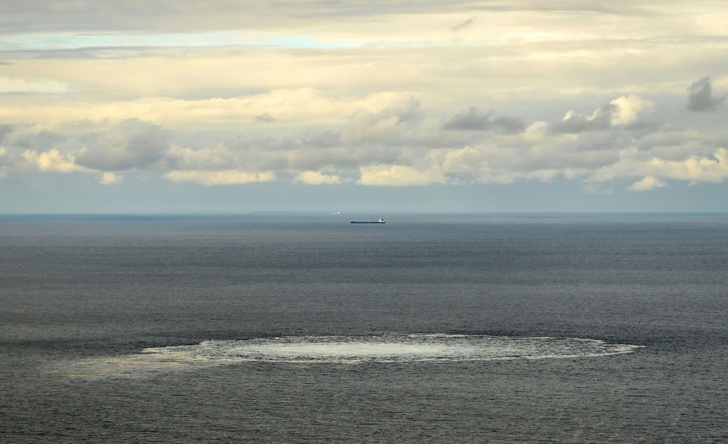Swedish prosecutors said Friday they would conduct a new complementary crime scene investigation of the Nord Stream leaks, after the navy and the pipeline owner also began surveys this week.
"I have decided to together with the Security Service (Sapo) conduct a number of complementary inspections of the crime scene," public prosecutor Mats Ljungqvist said in a statement.
The Swedish armed forces have decided to assist the investigation following a request, Ljungqvist added, without giving any details as to what they were looking for.
Four leaks emerged on the two Nord Stream pipelines in the Baltic Sea off the Danish island of Bornholm at the end of September with seismic institutes reporting they had recorded two underwater explosions prior to the leaks appearing.
While the leaks were in international waters, two of them were in the Danish exclusive economic zone and two of them in Sweden's.
In early October, the Swedish prosecution authority announced that they had collected "pieces of evidence" during an underwater inspection of the leaks in the Swedish economic zone, which had backed up suspicions of sabotage.
The new inspection comes as Sweden's navy and the owner of the pipeline Nord Stream AG both announced earlier this week that they were conducting their own inspections of the burst pipelines.
Jimmie Adamsson, head of communications for the Swedish navy, confirmed they were at the scene with a ship specialised in diving operations and that they were supporting the prosecution's new inspection.
But he stressed that it was not linked to the survey they had initiated on their own this week.
"The first investigation has not sparked the second, but they are two separate things," Adamsson told AFP.
Nord Stream AG, which is majority-owned by Russia's Gazprom, said Thursday that a "specially equipped vessel" had arrived at the location of "the pipeline damage in the exclusive economic zone of Sweden".
The pipelines, which connect Russia to Germany, have been at the centre of geopolitical tensions as Russia cut gas supplies to Europe in suspected retaliation to Western sanctions over Moscow's invasion of Ukraine.
Although they were not in operation when the leaks occurred, they both still contained gas which spewed up through the water and into the atmosphere.
jll/imm
© Agence France-Presse
Your content is great. However, if any of the content contained herein violates any rights of yours, including those of copyright, please contact us immediately by e-mail at media[@]kissrpr.com.
Source: Story.KISSPR.com

